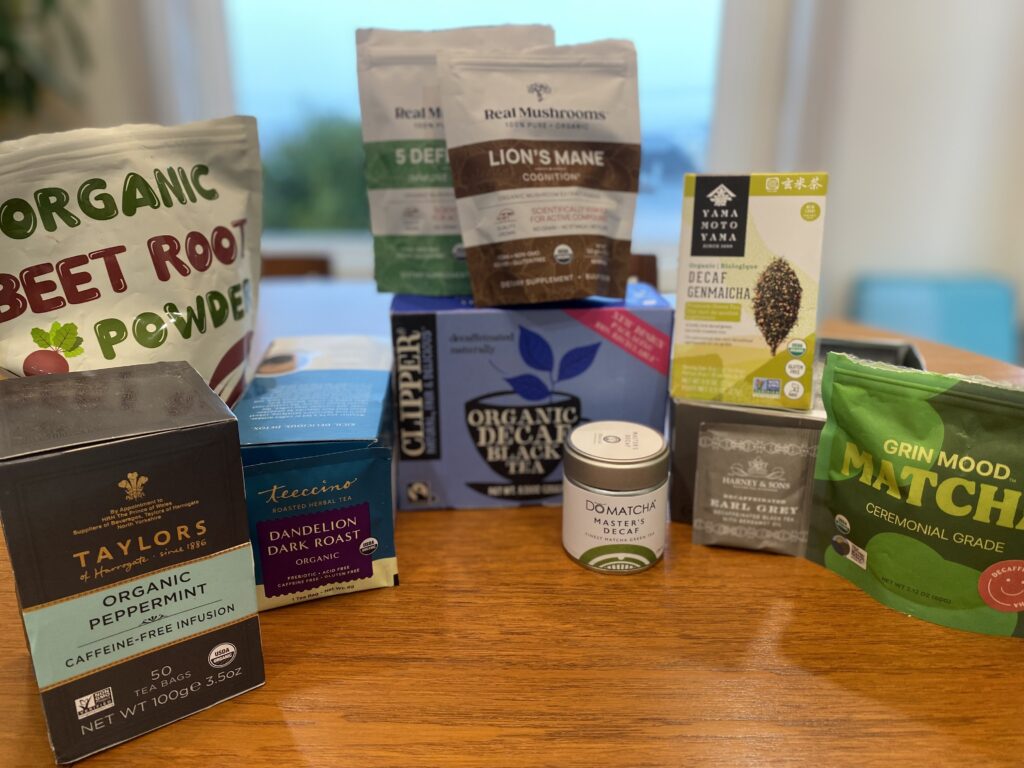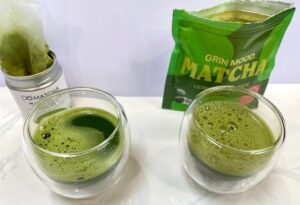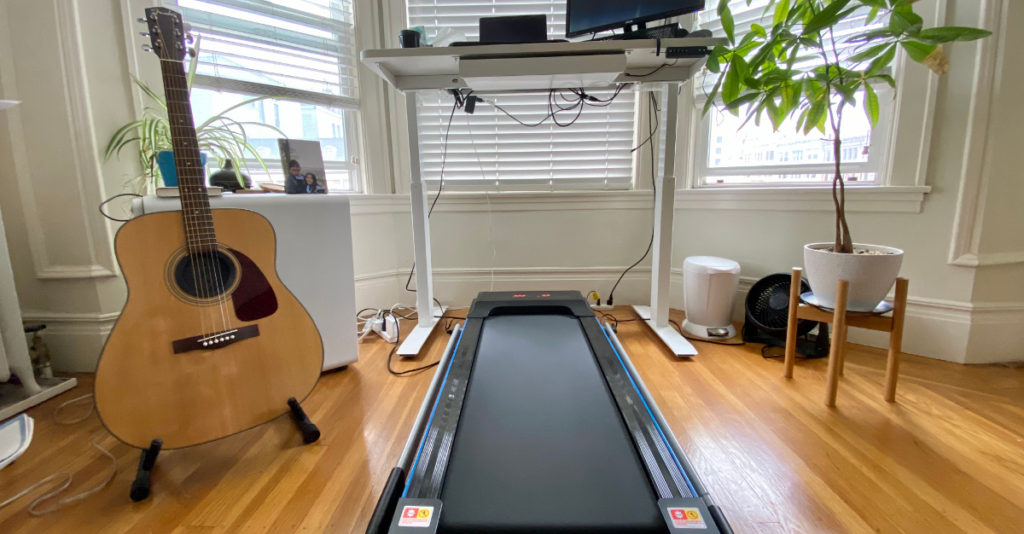Did you know that over 90% of adults worldwide consume caffeine daily, making it the most widely used psychoactive substance? Despite its popularity, many people aren’t aware of how caffeine might be affecting their well-being. For years, caffeine was a big part of my daily life, from childhood sneaks of coffee to grown-up rituals of coffee or matcha. I had tried quitting multiple times before, but it was hard to shake off my dependence. This time, I decided to approach it differently, committing to quit caffeine for three months to see what would happen. Here’s my story and what I learned along the way.
N-of-1 Experiment Results Warning: When it comes to caffeine metabolism and consumption, you and I likely have different genetics. I do not carry the genetic markers CYP1A2, AHR that are known to increase caffeine metabolism and consumption (per my 23AndMe results). Additionally, through personal experience, I consider myself a caffeine-sensitive individual. This means that, in my n-of-1 experiment of quitting caffeine, which is documented here, my experiences with and without caffeine will likely be different from your’s. Knowing that, I am sharing in the hopes that some of my observations are helpful to you.
My History With Caffeine
My first memory of drinking a caffeinated beverage was as a kid at Sunday church service. My friend and I would sneak into a reception room where coffee was made for the adults. We would pour a small amount into a styrofoam cup, then add ridiculous amounts of sugar and cream until it tasted good. Later, as a teenager, my friends and I would drink Mountain Dew to stay up all night playing video games.
As an adult, my daily caffeine ritual became deeply ingrained, whether it was coffee, matcha, or tea. I tried quitting several times: in 2019, I made it a whole month, and earlier in 2024, I made it a week. Most recently, after a two-week trip to Italy where I enjoyed my fair share of caffè lattes, I found myself struggling with headaches as I returned to my usual caffeine consumption levels. To stave off the withdrawal symptoms, I upped my intake, and soon enough, I was back to feeling dependent on caffeine.
How Does Caffeine Work?
Let me state this clearly: A substance that purports to give you energy by stimulating your nervous system isn’t giving you anything. It’s harming you! Using stimulants is like whipping a horse. They work for a short time, but prove disastrous when used repeatedly.
-Stephen Cherniske, Caffeine Blues
Caffeine is a stimulant that works by blocking adenosine receptors in the brain. Adenosine is a neurotransmitter that promotes relaxation and sleepiness as it builds up in the brain throughout the day. By blocking adenosine, caffeine keeps us alert and reduces tiredness. It also triggers adrenaline, also known as the “fight-or-flight” hormone, which can increase heart rate, blood pressure, and energy. While caffeine helps improve focus and ward off fatigue, its effects can wear off, often leaving us feeling jittery and more tired.
The Benefits of Quitting Caffeine: What I Hoped For

Getting off caffeine is like turning down the heat. Everything becomes more manageable. There may still be half a dozen pots on the stove, but they’re simmering nicely instead of boiling over.
-Stephen Cherniske, Caffeine Blues
To fully commit to quitting caffeine after several failed attempts, I wrote down the specific benefits I hoped to gain:
Physical Benefits
- No more fear of withdrawal or caffeine headaches
- Better sleep and the ability to nap
- Reset brain chemistry (e.g., adenosine receptors, dopamine levels)
- Reduced tightness in shoulders and neck when stressed
Mental Benefits
- Improved mood and energy: More consistent energy and stable mood
- Increased empathy, compassion, and connection with loved ones
- Calmer, more joyful, reduced anxiety, and feeling more centered
- Feeling like myself and becoming the best version of myself
- Reduced ego and jumping to conclusions, more genuine connection
Spiritual Benefits
- Inner peace and stillness, connection to my higher self
- Enhanced intuition, creativity, and mindfulness
- Greater emotional awareness and deeper meditation practices
How I Quit Caffeine
Quitting caffeine cold turkey was out of the question. I had done that before and knew how painful it was, and there was no need for me to go through that again. So I looked at my 250 mg a day caffeine consumption, and built a daily plan to taper it down each day.
During the first week of tapering, I went from 250 mg of caffeine per day to 100 mg per day. I stayed productive at work, while being a bit less stressed and more carefree. I did feel more drowsy, especially during evenings, and slept really well.
For the second week of tapering, I went from 100mg of caffeine per day to 0mg per day. On a few nights during this time, I didn’t sleep well. I read that, paradoxically, caffeine reduction can cause temporary insomnia, so this is probably what was happening. My energy level and motivation stayed mostly the same during this time. On days when I had stronger withdrawal symptoms, such as a caffeine headache or low motivation, I took a supplement that many caffeine quitters swear by, 500 mg of D-Phenylalanine to help support my dopamine levels and reduce any headache pain I was feeling.
What Happened When I Quit Caffeine for Three Months
I kept a daily log after quitting caffeine, as well as tracked my sleep and other data points using a Fitbit and Whoop.
Fears vs. Reality
Quitting caffeine was intimidating because I had deeply ingrained fears about what might happen. Here’s how my fears compared to reality:
- Fear: I’ll be miserable and tired all the time
Reality: I was more tired than usual during a 2-week tapering phase (where I gradually reduced daily caffeine consumption until it was zero). I felt especially drowsy during the evenings of this tapering phase, and slept like a baby. This is to be expected as my body was adjusting to less caffeine. Beyond that 2 week period, I wasn’t any more tired than usual.
- Fear: My dopamine levels will plummet and I’ll have no motivation
Reality: There was really only 1 week (the first when I was fully off caffeine) where I felt low motivation. During that week, I took D-Phenylalanine as needed (earlier in the day), which supports low dopamine levels.
- Fear: I’ll have caffeine withdrawal headaches for days
Reality: This was not my experience, partially because I quit in a strategic way, by tapering my caffeine consumption during a 2-week period until I was at zero. There were occasional headaches, but these were manageable. And more surprisingly, after the initial withdrawal symptoms were gone, I didn’t have headaches at all.
- Fear: I’ll be less productive at work
Reality: During the first week after I fully quit caffeine, I was less motivated due to temporarily reduced dopamine levels, and therefore I was less productive at work. Beyond that, my motivation came back, but it felt different from caffeine-fueled motivation. I didn’t have a “cheat code” to power through busywork tasks. I still did busywork as necessary, but I went about my day in a more strategic way, by prioritizing the truly important work.
- Fear: I’ll be less outgoing and won’t be able to connect with people as well
Reality: As an introvert, I’ve felt that caffeine has helped me bring more outgoing energy than I would naturally have. Without caffeine, I have found myself to be a better listener, and conversations flow more naturally.
- Fear: Going on weekend walks won’t be as fun as there won’t be the anticipatory hit of caffeine from a Milk Tea shop or Cafe
Reality: I realized that the weekend walks weren’t about the caffeine hit, they were about enjoying being outside, having an adventure, and connection. And bonus was that our favorite Milk Tea shop had a decaffeinated option for me.
The Top Benefits I’ve Noticed After Quitting Caffeine

Here are my top benefits after quitting caffeine:
- No More Caffeine Dependency: I don’t need caffeine for energy any longer, and there are no more caffeine headaches or fear of withdrawal. This cannot be understated. Before quitting, there was always the thought in the back of my mind after waking up about when I’d get my first / second hit of caffeine… And the follow up worry if I had it too late, how it’d impact my sleep. After quitting, there’s a sense of freedom, where I don’t need this thing outside of myself to feel energized. It’s empowering.
- Better Sleep: I felt more well-rested after quitting caffeine. On average, per Fitbit, I got 30 minutes more sleep per night, and my sleep score increased by 4 points (from 78 to 82). The first month of quitting caffeine, my sleep score averaged 80, month 2 was 83, month 3 was 82. I can see similar trends in Whoop, where my sleep performance went from 95% to 100% in the month after quitting caffeine, and has hovered in the 97% – 100% since that point.
- Improved Ability to Handle Stress: Stress itself isn’t bad, but the kind of stress that caffeine induces (through increased adrenaline) can be problematic. For me, I noticed that, while I still had stress, it wasn’t as bad as before, and I found better ways to deal with it (e.g. yoga, meditation, exercise). Per Whoop, my Heart Rate Variability (the body’s ability to deal with stress) improved by 8% over the course of my no caffeine experiment.
- More consistent energy throughout the day: My energy was more predictable throughout the day. If I needed more energy, I would listen to my body to see what was needed specifically, e.g. a break, a snack, yoga, exercise.
Post-Experiment Thoughts and Tips
It has now been a few weeks since I completed my three month experiment of quitting caffeine. Because of the benefits I’ve experienced after quitting caffeine, I’ve decided to make this a part of my lifestyle moving forward.
Here are some things I’ve learned that will make a no caffeine (or reduced caffeine) lifestyle sustainable long-term:
- Find Decaffeinated Beverage Options that You Love

If you love coffee / tea / matcha, like me, but just don’t love being addicted to caffeine, it will be important to find non-caffeinated substitutes. Here are some of my favorites:

- Decaf. Matcha: Decaf matcha is a game-changer for tea lovers seeking the health benefits of matcha without the caffeine buzz. I recently did a head-to-head comparison of two stand-out decaf matcha options on my Matcha Reviews blog.
- Decaf. Harney & Sons Bergamot black tea: This tea tastes amazing! With the bergamot oil, you can hardly tell this is decaf at all. I prefer it as a milk tea with ¼ cup of oatmilk and 1/2 tsp of maple syrup.
- Decaf. Clipper Black tea: This one is great on its own and tastes about the same as a caffeinated black tea, and is decaffeinated using a natural process.
- Yamamotoyama Organic Decaf Genmaicha Green Tea: If you enjoy genmaicha’s toasted rice, green tea flavor, this one is pleasant and almost the same as the caffeinated version.
- Organic beet root powder: I drink this with 1 tsp of beet powder and ¼ cup of oatmilk. Beet powder has a naturally sweet flavor, and it works great as a pre-workout as it improves circulation and bloodflow.
- Herbal Dandelion Tea (Teecino Coffee Replacement): Teecino has a nice coffee-like flavor, and includes pre-biotics which are great if you are looking for a drink that will help you stay regular (if coffee was doing that for you previously). I like to drink it as an iced milk tea with ¼ cup of oatmilk (no sweetener needed).
- Golden milk tea: I like to mix turmeric, cinnamon, ginger, and oatmilk together, and heat it up for a warming drink.
- Taylor’s Organic Peppermint tea: Peppermint tea can help wake you up in a more subtle way first thing in the morning or if you are feeling groggy.
You can try adding other ingredients to your drinks to make them more interesting. For example, there’s a milk tea shop that my wife and I visit that has an option to use chia seeds instead of boba. We enjoy that, so at home now, we often add ~1 tsp of chia seeds to our milk tea drinks (be sure to add them first and mix with a little hot water to get them to soften). Additionally, I find 1/2 tsp of this lion’s mane powder to be complementary with matcha, and 1/2 tsp of this mushroom powder blend works well with the Teecino herbal dandelion tea.
It’s important to have a plan ahead of time before going out or on vacations. For example, I now pack decaf. black tea bags with me, and if I’m meeting up with friends/family where everyone is ordering a caffeinated drink, I’ll ask for a cup of hot water and add my own tea bag. This is usually better than the decaffeinated choices that restaurants/cafes have these days.
- Find a new caffeine rhythm

For some people, caffeine only becomes a problem when it goes from the “first cup in the morning” to “drinking it throughout the day.” In this case, if you can cut it back to just one drink per day, that can be a healthy rhythm for you.
For others, like myself, you may be caffeine sensitive, and want to develop a new relationship with caffeine in your life, one that doesn’t involve needing it daily or becoming addicted to it (which can happen in only a couple days). In this case, you can try drinking caffeine less frequently, for example:
- Zero caffeine: Don’t drink caffeine at all, or any products that contain even small amounts of it (e.g. decaf. products, chocolate). This option seems extreme for most folks, and IMO it’s not necessary to go this far.
- Mostly no caffeine: Do your best to not drink caffeinated products. If you enjoy decaffeinated products (e.g. decaf tea / coffee) and those with very low amounts of caffeine (e.g. chocolate, low caffeine matcha), and they aren’t a problem for you, then enjoy those. You are getting less than 5 mg of caffeine in most of those products, so they won’t be a problem for most individuals.
- Intermittent usage: Drink caffeine occasionally, when you really need it, e.g. if you have a long road trip and need to be alert after getting poor sleep.
- Once per week: Drink caffeine once per week as a treat, e.g. on a Saturday as part of your weekend ritual. This will most certainly ensure you don’t develop a tolerance to it as long as you don’t add caffeine more frequently (it’s a slippery slope).
- Every other day: Andrew Huberman recommends this approach on his podcast (see full clip), he says “Taking caffeine on alternating days can help maximize the performance-enhancing effects of caffeine without suffering from the effects of caffeine withdrawal. Caffeine can be habit-forming, and we can develop a tolerance to caffeine. The every-other-day schedule of caffeine intake seems to be the most rational and scientifically grounded one to maximize all the effects of caffeine. Regular caffeine users can still derive the cognitive enhancing and focus-enhancing effects of caffeine if they ingest caffeine every day. However, taking two days off from caffeine completely and then taking caffeine in the 30 minutes prior to some important event can have an even greater effect.”
Note that if you drink caffeine less frequently, and are caffeine sensitive, your tolerance to it will stay low. On the days you consume caffeine, you might consider pairing your caffeinated beverage with l-theanine (the active calming ingredient in green tea leaves) to give yourself a smoother caffeine experience. On caffeine days, if you are caffeine sensitive, and especially if you consume caffeine beyond noon, I’d recommend taking a De-caffeinate pill (Rutaecarpine, a natural alkaloid found in the Chinese herb Evodia) at the end of the day to help you quickly metabolize the remaining caffeine in your body and get good sleep.
- Join a decaf. community
In the first few weeks of my no caffeine experiment, I read a lot of inspiring blog posts on quitting caffeine, and eventually, I found the Reddit community r/decaf, which was extremely helpful. I didn’t actually post to this community, but reading about others experiences helped me understand what I was going through and feel that I wasn’t alone in my goal to quit caffeine.
- Get your energy in other ways

There are plenty of other ways to give yourself an added boost of energy:
- Knowledge workers can try using a treadmill desk: This was one of the biggest boosts to keep my energy consistent during the work day. See my full blog post and experiment results on this: So I Tried a Treadmill Desk
- Cardio earlier in the day: This can give you an extra boost going into your workday. I like to use an exercise bike.
- Strength training later in the day: This is a great way to give you a boost in the afternoon/evening.
- Yoga or meditation: Yoga and meditation practices are known to help you get centered and balance your energy levels. Even a short session can make a huge difference.
- Intermittent fasting: I skip breakfast each morning, which gives me a stronger ability to focus during the workday (see blog post). I do 24-hour fasts 1-2x per week, and without caffeine as an appetite suppressant, these are a bit more difficult, so recently I’ve been using Rhodiola on those 24-hour fast days to help my body adapt.
- Keep a gratitude journal: Staying positive and building your gratitude muscle is a way to most definitely increase energy levels. I follow the 3 Good Things journaling practice, which I do just before bedtime each evening.
Have you ever considered quitting caffeine? What benefits or challenges did you experience?
Credits
- Thank you to Jason Divis, Joanna Chan, and Marvé Ralston for early draft feedback and moral support
- Visuals (other than decaf. product photos, treadmill desk) generated using DALL-E
Accelerate Your Personal Growth

Join my newsletter for more tips and bonus material.

